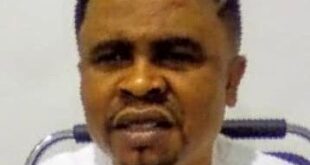By Paul Williams
As the 2023 general elections enters a new phase in its life next Saturday, how has the media fared in its coverage of the nationwide exercise? What are the dominant trends among media houses and journalists in the coverage of the elections? Have professional standards and ethics been adhered to? Have women, young people and persons living with disability been adequately captured in reports emanating from the electoral process?
These and others were questions before a stakeholders’ roundtable, organized by the International Press Centre (IPC) in Port Harcourt on Wednesday, with support from the European Union Support to Democratic Governance in Nigeria (EU-SDGNII), to assess its ‘Media Monitoring Report on Coverage of 2023 Electoral Process.’
According to IPC’s communications officer, Olutoyin Ayoade, the stakeholders’ roundtable, “apart from unveiling and discussing the outcomes of the analysis of trends in reportage of the 2023 election procedures by 15 print/online newspapers and INEC website/twitter platform for January 2023,” as captured in her organization’s report, “will also address related issues of media coverage of the 2023 electoral process, especially ahead of the governorship and House of Assembly elections.
“This roundtable is pursuant to the aims and objectives of Component 4: Support to Media of EU-SDGNII project being implemented by IPC (lead partner) and the Institute for Media and Society (IMS) to enhance the Nigerian media’s role in promoting democratic governance through fair, accurate, ethical and inclusive coverage of electoral processes and elections in Nigeria,” she said.
IPC’s executive director, Lanre Arogundade, said that his organization, “since last year, started monitoring some print newspapers and online media, in terms of professionalism of their coverage and ethics. We also looked at how well they are covering the issues of women, particularly female politicians, persons with disability and young people.
“We felt that we should subject these findings to a roundtable discussion among our colleagues, so that we can know where the gaps are, the weaknesses and the reasons for these gaps.
“For example, at this roundtable, some of our colleagues have observed that issues of women have not been well covered, and some have said it is because these female politicians are not making themselves available.
“But beyond that is the language of our reporting. Because, following what happened on February 25, a lot of people are aggrieved, some are angry and some are not happy. As media organizations, we have to be above all these emotions and sentiments and present the facts and issues to the people,” he said.
One of the discussants, Emem Okon, who is the executive director of Kebetkache Women Development and Resource Centre, commended IPC for facilitating a report on media coverage of the 2023 elections. She however noted the issue of inclusivity, as contained in the report, pointing out that “somehow, the coverage has been one-sided, because the (media) reports favour the privileged more than the dis-advantaged people.”
Describing women, youths and persons living with disability as segments of the society not adequately captured by the media, Okon said, “I think the media needs to balance it. We need to create a balance so that we project those who can pay and also the under-privileged, under-represented and marginalized groups, who also have something to say and have one role or the other to play in the electoral process.”
Chairman of the Rivers State Council of the Nigerian Union of Journalists (NUJ), Comrade Stanley Job, harped on the monitoring report’s findings on the safety of journalists during the elections.
He drew attention to the report’s findings that over 20 journalists were attacked during the February 25 presidential polls, noting that attacks against journalists are seldom reported. One of such under-reported cases, he said, was the one against a Port Harcourt-based journalist, Chiweta Nwagbara, working for a radio station in the city, Love FM, who was attacked during the February 25th polls.
While reviewing the report on media coverage during the polls, lecturer at the Rivers State University (RSU), Dr. Dike Harcourt Whyte, commended IPC and its partner, the EU-SDGN, for their efforts at strengthening Nigeria’s democracy.
He said the report and stakeholders’ roundtable creates a platform for journalists, from various media houses, to come together, “listen to all the issues as they were, and then (talk about) how we can mitigate those issues and move forward. It helps the way they report the elections and the way they source for news.”
Dr. Whyte added that “talking about the elections generally, I think the media has done their best, because from the report, we see that over 4,007 reports on both INEC activities, voter’s card collection, civic education and all of that. I think the media has done their best, but they still need to do more.”
He noted that “news should not be for sale,” adding that “that way everybody has opportunity to be heard. We should cover the news and make sure that our job is to bring the news to those who need the information, and that way we have a better society.”
Journalists, working with print, broadcast and online media in the city of Port Harcourt, who were participants at the roundtable, commended IPC on the initiative to afford media men an opportunity to x-ray their work before, during and after the elections.
 PH Mundial – Port Harcourt Online Newspaper News Across The Region
PH Mundial – Port Harcourt Online Newspaper News Across The Region



